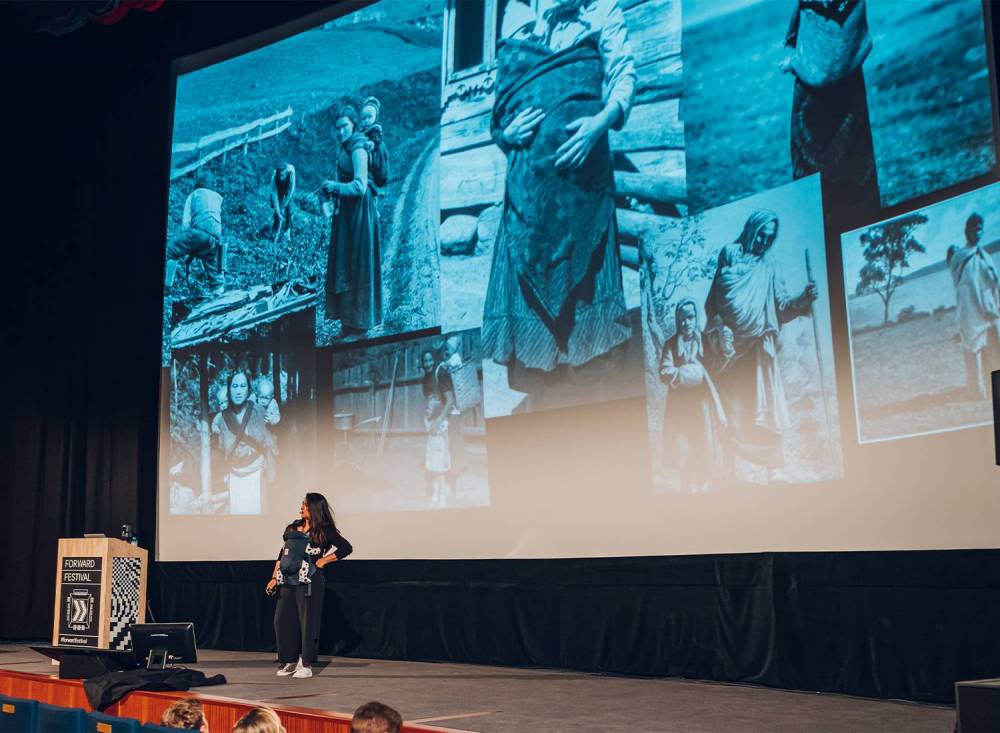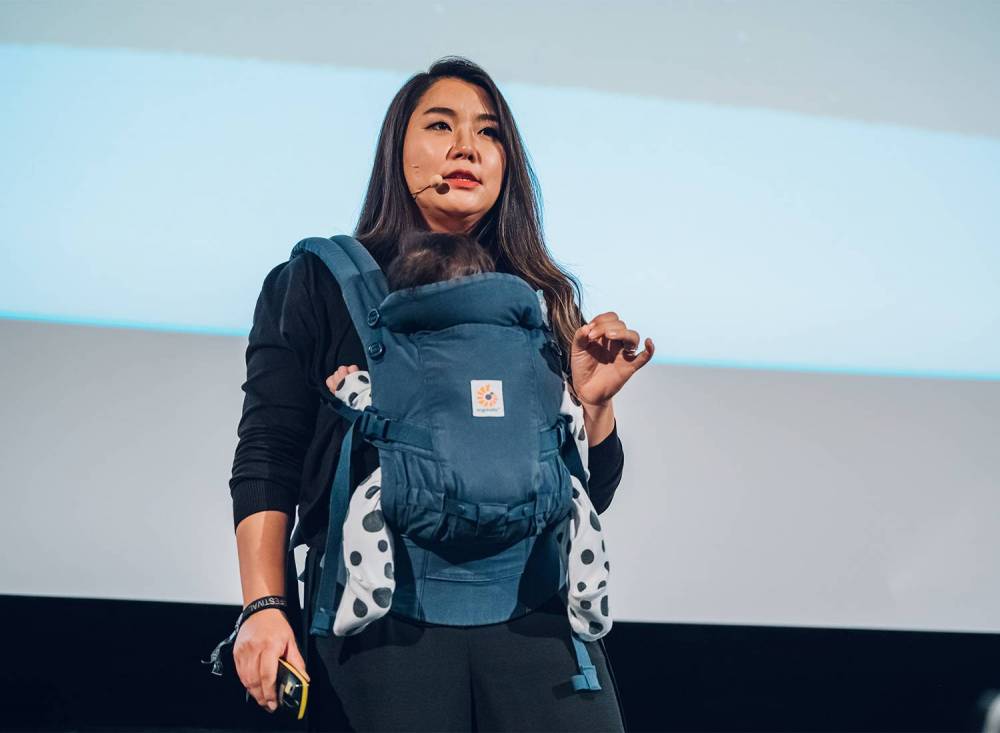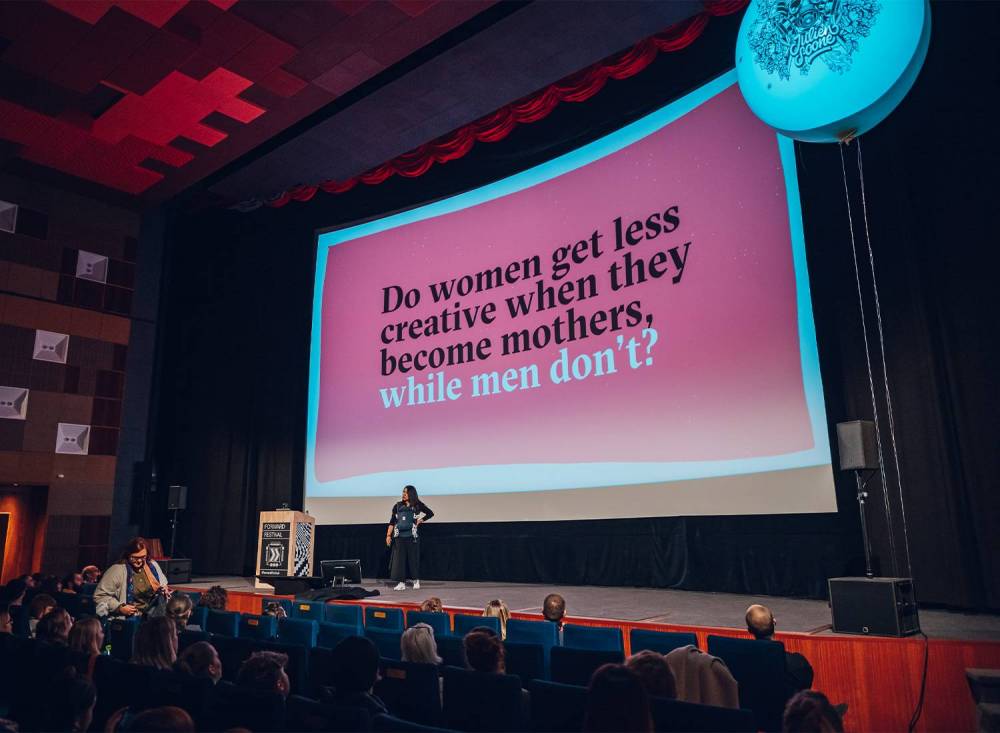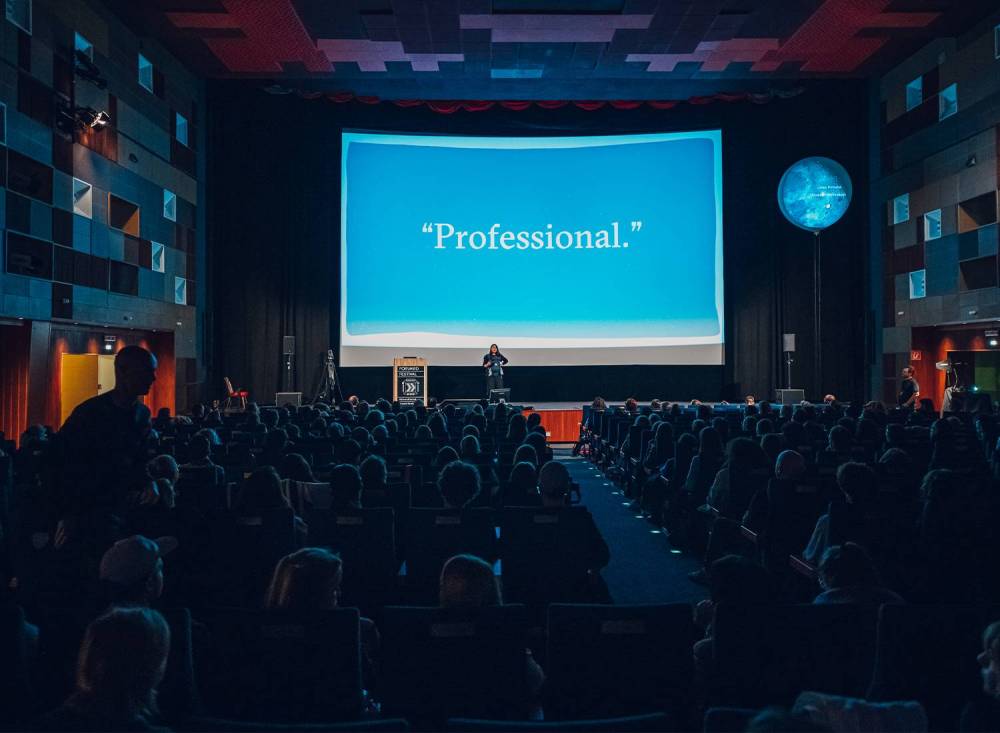Accenture’s Kaitlyn Chang talking girl power
If you were amongst the lucky ones, who saw Kaitlyn Chang’s talk at Forward Festival Vienna (and if not, you can rewatch it here) you surely remember how she entered the stage: with her baby daughter in her arms. With symbolically stressing the problem of being a leading female creative in a man’s world, Kaitlyn Chang of Accenture Interactive wowed the crowd by speaking about disappearing women from leading positions when having a baby. We had a chat with the woman of the hour!
WATCH KAITLYN CHANG’S TALK IN FULL LENGTH HERE!
You just wowed the crowd at Forward Festival. What were your takeaways from your talk and the event?
I am still blown away by the response during and after the event. My post about the talk with a photo of me on stage with the baby received more than 2 million views on Linkedin within one week. I am getting messages from women all over the world about how it resonated with them – especially women who are working mothers themselves, saying that they had also been censoring themselves until now and ‘hid away’ their children, for fear of being seen as unprofessional. Many men have also written saying they had never heard of #motherhoodpenalty before and that it was eye-opening, which was very humbling.
Honestly, I never expected such a huge response – but I think it shows that this is a topic that definitely needs to be talked about more often, and I’m really grateful to Forward Festival for having given me the opportunity to start this discussion.
You spoke about how women disappear from leading positions in the creative scene when getting older or having a baby. How has your creativity changed?
I can say with conviction – having a baby has not changed my creativity one bit. In the sense that, no, having a baby was no magic potion that somehow sparked up creativity for me (unfortunately!) – but also no, it did NOT make me suddenly lose all my creative juices. I’m the same person with the same professional capabilities as before giving birth, which is why it is strange when you stop and think about the fact that many of us automatically assume older women or moms working in the industry to be somehow “uncool”. They’re not – that’s just an unconscious bias playing tricks on your mind. Remember, we don’t think that about older men/fathers.

A healthy work-life balance is essential to be creative. What tips do you have to keep the balance?
I think it’s important to know your own priorities and limits very well because this can be different for everyone. I don’t think a healthy work-life balance has to always mean “Only work from 9-5 and then afterward only family” for everybody. For someone, it could mean a lot more family and a bit of work, for someone it could mean more work but supercharged, high-quality family time. I think it’s critical to know what’s really important for you and up to what limit you can “break down” or merge the times required for two different responsibilities so that you feel satisfied and content with your own life.
When you know your own priorities and limits, then the next is being able to set boundaries accordingly and communicating about it clearly to others. I love an email signature footer many of my colleagues use at Accenture, it goes like this: “I am sending you this email at a time that works for me. I do not expect you to respond until regular business hours, or when it suits your own work-life balance. I encourage you to make guiltless work-life choices and support flexible working.”
The first time I saw this in an email from a male colleague of mine (who had recently become a father) it blew my mind, and I changed mine as well. I can definitely encourage you to use it too – work-life balance is all about flexibility, and flexibility is defined differently by everyone.
What’s your advice for young creatives, especially women, who are just getting started in the creative industry?
There are now more and more awesome, badass role model women who’re paving their way in the industry. Find them, get to know them or read about them, talk to them if you can, and most importantly – know you can also be them.
Know that many of them also still suffer from Imposter Syndrome, no matter how successful they might seem, and use that as knowledge to get rid of your own Imposter Syndrome. Try to become an inspiring role model for one other woman, it all starts from there – this is a community task and we only rise together by helping others.

Do you have any idols?
Sure – Jacinda Ardern, AOC, Michelle Obama, Jonathan van Ness, Tarana Burke, Madonna Badger – list goes on and on.
Where do you find your inspiration?
I’m always a firm believer that unless you’re some 0,001% supergenius, for most people ideas don’t come from yourself alone, and also ideas don’t come from a vacuum. I also think the best ideas always come from deep understanding and empathy, and that’s why I usually seek inspiration from stories and people. I read a lot of novels, watch a lot of talks, go to conferences and follow a lot of completely diverse people from all over the world on social media – all of these stories never fail to inspire me. Some of my favorite accounts to follow these days that I can strongly recommend to you are:
@specialbooksbyspecialkids
@spencer2thewest
@chrisunkim
@theharperwatters
@davidsuhphoto
When kicking off a new project, how do you start?
I first open a blank file and write down everything that comes to my mind in a completely unstructured way. Most are questions about why X should be always Y. Then, while those lines of thoughts and ideas are only just forming, I also start researching and talking to people about it and write down / copy-paste anything that interested me in the file. Still completely unstructured. It usually takes at least a week (and a very long, super messy file) to start to form ideas and structures in my mind – I sleep on it, sit on it, think about it but not only about it – and then afterward I filter out what’s most important and structure the idea in a way that really makes sense.

Do you have a goal in mind or does that keep evolving throughout the process?
I probably have a vague “feeling” in mind as a goal, but nothing concrete, and nothing that I can pinpoint at the beginning. But throughout the process, my thoughts evolve and at some point, I feel that it clicks with the vague feeling I had at the beginning, and usually, because I’ve done a lot of research or talked with a lot of people, it has gotten much better or bigger than what I originally thought.
Do you consider yourself a perfectionist?
I enjoy forming the big picture and setting directions and tend to be quite lazy (or let’s say “optimistic”) about the details. I know therefore that I always need to work together with people who are great at details.

If there was anything you could change about the creative industries, what would it be?
50% women at the top. And much much more diverse recruiting in general, not only about female-male but about everything else. There’s one thing I always used to say to my team when I first came to Austria: How are you ever going to get a different, unique idea if you have an entire room full of people who all grew up watching ORF?
Watch Kaitlyn Chang’s talk in full length here: